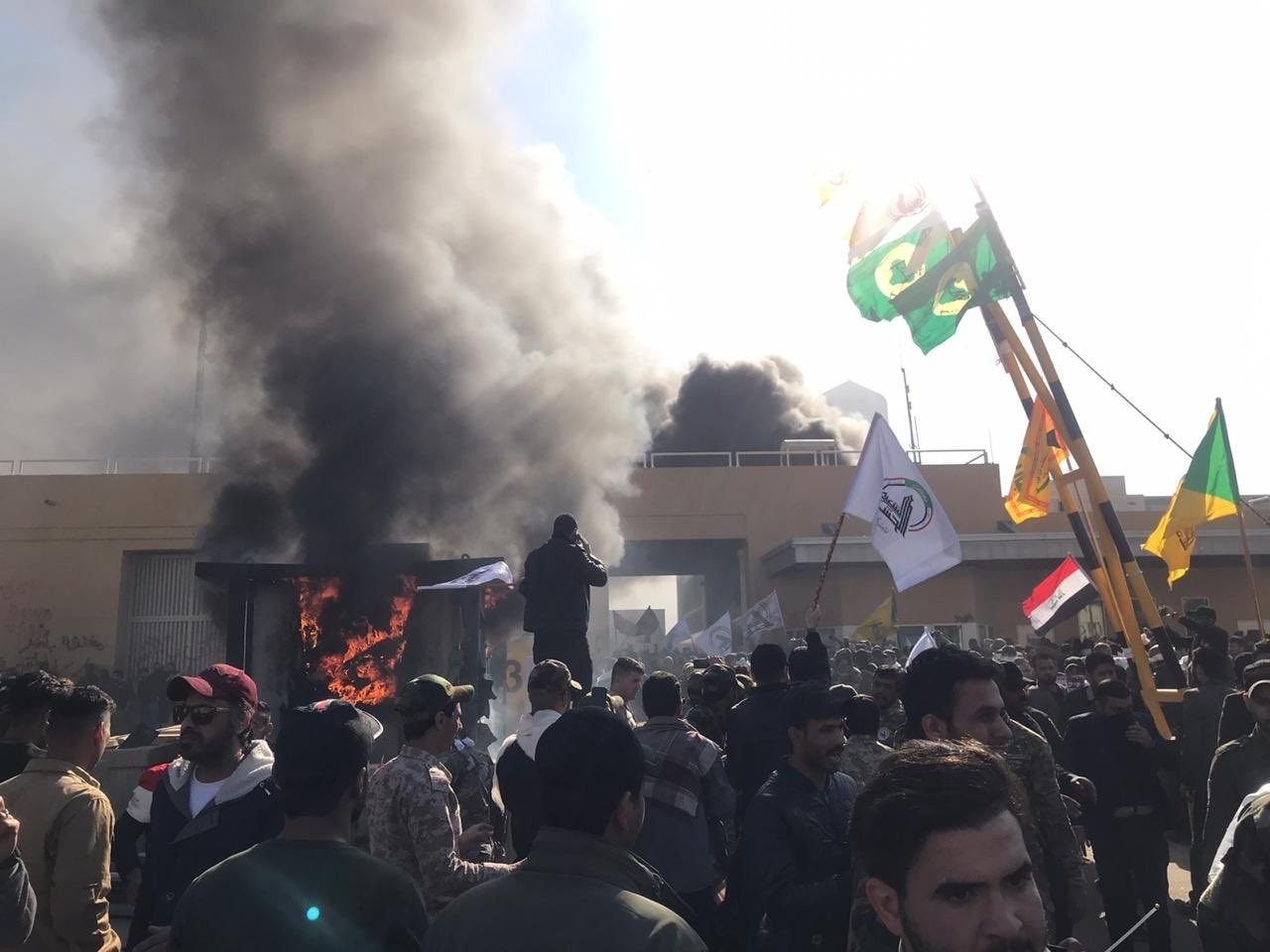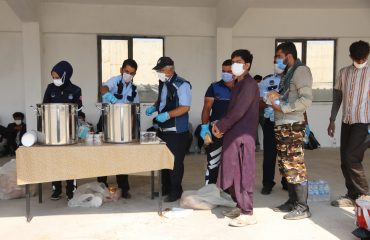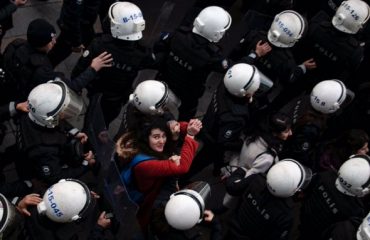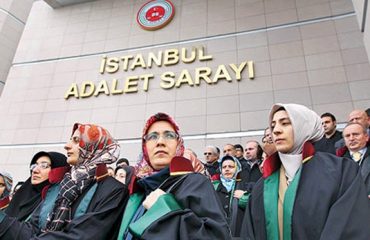
“We are watching the situation closely and carefully”, told Fatih Yıldız, Turkey’s Ambassador to Baghdad, to Yetkin Report on the phone on January 1; “It is worrying how easy the militants could get into the Green Zone and raid the U.S. Embassy. I believe no harm will come from Iraqi people to Turkey but the conditions are open for provocative actions.” What the Turkish Ambassador did not, or could not say was that Ankara as well suspects that there were pro-Iranian or simply Iranian elements among the Hashd Al-Shaabi and Kataib Hezbollah militias who raided the U.S. Embassy in Baghdad on December 31. A Middle East expert who was observing the incidents in Baghdad told YetkinReport on the phone, on condition of anonymity, that the preparations of the raiders looked like as if they were after a “siege” of the Embassy, to imply “a second Tehran Embassy incident” recalling the hostage-taking incident after the Islamic Revolution in Iran in 1979. American memories are fresh about the 2011 raid to the U.S. consulate in Benghazi where terrorists had killed the U.S envoy Christopher Stevens and three other Americans.
Preparations for Libya
Almost at the same time on January 1, in Ankara, Fuat Oktay, Turkey’s Vice President was telling to the semi-official Anadolu Agency that he “hoped” other parties in the Mediterranean theatre would get the “right message” from the Parliamentary voting on January 2 to send troops, if necessary, to Libya as requested by the UN-recognized government of Fayez Al-Sarraj, though there would be no need to actually send troops. Following the recent signing of the maritime and security cooperation agreements between Sarraj and the Turkish President Tayyip Erdoğan, the Tripoli government has asked for military assistance and Erdoğan has sent the motion bill to the Parliament. National Defense Minister Hulusi Akar, on the other hand, said that the military was ready to be deployed to Libya whenever asked by President Erdoğan, as soon as Parliament approves it. Foreign Minister Mevlüt Çavuşoğlu failed to get the support of the main opposition Republican People’s Party (CHP) leader Kemal Kılıçdaroğlu and the Good Party (GP) on December 30 meetings, but with the support of Devlet Bahçeli’s National Movement Party (MHP), Erdoğan is confident that there will be no problem. As predicted, the Parliament enabled the government to send troops to Libya for a year, by 325 votes against 184. It was interesting that right after the voting, it was announced in Ankara that President Erdoğan had a telephone conversation with the U.S. President Donald Trump where the two leaders discussed Libya, Syria and Iraq. (*)
A risky Libya picture
Oktay also said that by the agreements with Libya’s legal government, Turkey spoiled the plots of those conspiring to keep Turkey off from the use of the Mediterranean Sea, despite having one of the longest shores to it. He did not give any names but he was implying the grouping formed by the Greek, Greek Cypriot, Egyptian and Israeli governments, considering the oil and gas exploration rights around the island of Cyprus, against Turkish and Turkish Cypriot interests. “Everyone should see that no game is set in the East Mediterranean region by excluding Turkey”, Oktay said.
Earlier, President Erdoğan has announced that Turkey would never let the Libya people down if they asked for help. Erdoğan’s spokesman and chief adviser for Security and Foreign Policy has said recently that if things come to that extent, Sarraj forces would need air defence systems. That is mainly because of the United Arab Emirates (UAE) air forces deployed in Egypt in support of the rebel Halifa Haftar forces with their headquarters in Benghazi in the divided country.
The group against Turkey in the Cypriot gas dispute are also supporting Haftar with open backing of Saudi Arabia and covert support of Russia as Moscow did not stop “private” Wagner fighters to join Haftar forces. The common denominator of this group is Sarraj government’s alleged links with the Muslim Brotherhood, considered a terrorist organization by all those countries but not by Turkey; and Turkey is getting the support of Qatar in the Libya venture. There are claims that there are jihadist groups from Syria among Sarraj forces, who used to be backed by Turkey and Qatar there. On the other hand, there are reportedly Salafi jihadists from Syria who used to be backed by Saudi Arabia and the UAE and even Janjaweed militants from Sudan and Chad, accused of mass slaughter in Darfur, among Haftar forces.
Iraq on top of Syria and Libya
Amid problems in Syria and Libya, Ankara has to also deal with the tension in Iraq.
Turkish official sources underline that the U.S. Embassy raid in Baghdad should not be confused with the protests going on since last October. “Those protests were not only against their government or the U.S.” one source elaborated; “They were also against the interventions of Iran into Iraqi affairs. The raid was violent and by pro-Iranian groups, who ironically had collaborated with Americans against ISIS in Iraq until recently.”
Turkey wants to stay away from trouble between the U.S. and Iran on the Iraqi theatre, but it may be inevitable to soon get involved: Iraq is the only land route left for trade with other Arab countries due to the war in Syria. And there is the need to cooperate with the central government in Baghdad and the Kurdistan Regional Government against the actions of the outlawed Kurdistan Workers’ Party’s (PKK) moves against Turkey.
If considered that there are approaching problems with the U.S. over the Russian S-400 purchase and possible sanctions, 2020 is likely to be more complicated for Turkey, especially in the Middle East and the East Mediterranean.
(*) Updated on January 2, 2020 at 19.57


